I remember eighteen months ago we were talking about a “marathon, not sprint” as if COVID was something that would follow a lengthy but predictable trajectory. And now? To put it bluntly, we’re just over it. Except we’re not. With an uptick in cases and news about variants and breakthrough infections, we are worn down by what we don’t know. We are subconsciously acclimated to an underlying sense of anxiety that things could get much worse, quickly. We worry about school and kids who can’t get vaccinated, seniors who might once again be isolated. And on top of all that, we are enduring our remarkable ability as a society to politicize just about anything… including masks and needles.
Frankly, I don’t think anyone wants to have to come to terms with the reality of a variant or a spike in infections. We don’t want to accept that ongoing uncertainty is now a background hum in our everyday lives. We don’t want to wonder if we should or shouldn’t make a plane reservation or buy season tickets or plan a family reunion. We struggle to summon enthusiasm for another virtual event, even if it’s the safe bet. And yet here we are. It seems we have no choice but to continue emerging from the pandemic while still dealing with it at every turn. How do we do that?
I don’t have one singular answer, but what comes to mind for me is driving uphill in a Montana winter the day after the big snowstorm. Imagine the point where you start to lose momentum and you have to slow down to keep moving forward. You let off the accelerator a bit, but not all the way, and you wait to feel the grip under the tires. And then you go again. If you slow down too much you’ll come to a standstill, but if you try too hard or go too fast you just dig yourself in. If you’ve ever been there, you can feel the instant when the brake and accelerator work together, the tires take hold, and you start forward. Traction.
This summer I had the chance to participate in a remarkable retreat centered on restoration. In fact, renewal was the sole curriculum. Horseback riding, fishing, hiking, and seriously amazing food were the agenda, along with one three-hour workshop on something called compassion fatigue. I wasn’t too excited about the woo-woo sounding workshop topic, but as it turned out – the session was a game-changer. I learned about this diagnosable condition called compassion fatigue. Those in helping professions are particularly susceptible to this, either in the face of trauma, or when demand outstrips supply for too long. It’s a real thing – and fortunately there is an antidote. I won’t go into the details, nor am I suggesting that the entire Montana nonprofit community has a case of compassion fatigue. But over the course of the summer, this concept made such a profound difference for me that we asked the workshop speaker to open this year’s Conference. We placed Lynette Rodi on day one, intentionally, as our invitation to you to spend a minute getting grounded before moving forward into the Conference. Obviously one workshop isn’t a cure-all. But, speaking for myself, what I learned about compassion fatigue has allowed me to be present in my life and in my work with a sense of joy and fulfillment rather than depletion – even in the midst of prolonged uncertainty.
I fully believe traction is not something we can muscle our way into; it requires just enough pause to be keenly attuned to the conditions – not be overwhelmed by them, just attuned – so that we can adjust accordingly and in the moment. We are in a time when trying harder just won’t work. As non-intuitive as it sounds, it’s the pause that will give us what we need to move forward, the traction we need to be sustained for the long haul.
Sincerely,
~ Liz
Liz Moore | MNA Executive Director
This year, we invite you to gain TRACTION. From the thread of the tread to the uncomfortable but necessary presence of friction, TRACTION is about the foundation we create to carry us forward. LEARN MORE.

